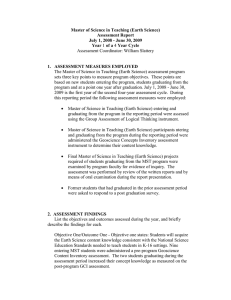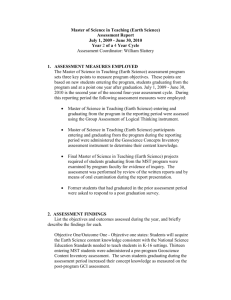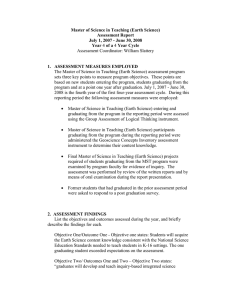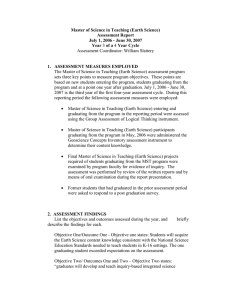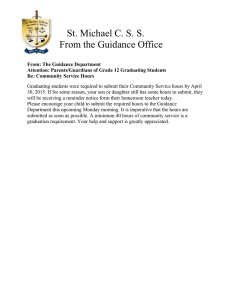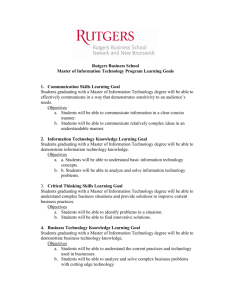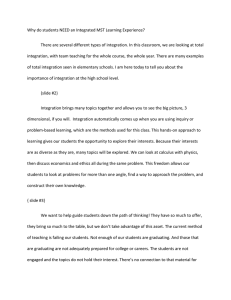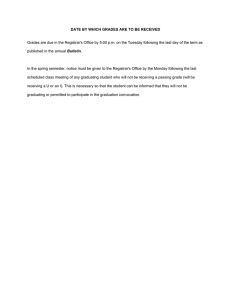Master of Science in Teaching (Earth Science) Assessment Report Year
advertisement
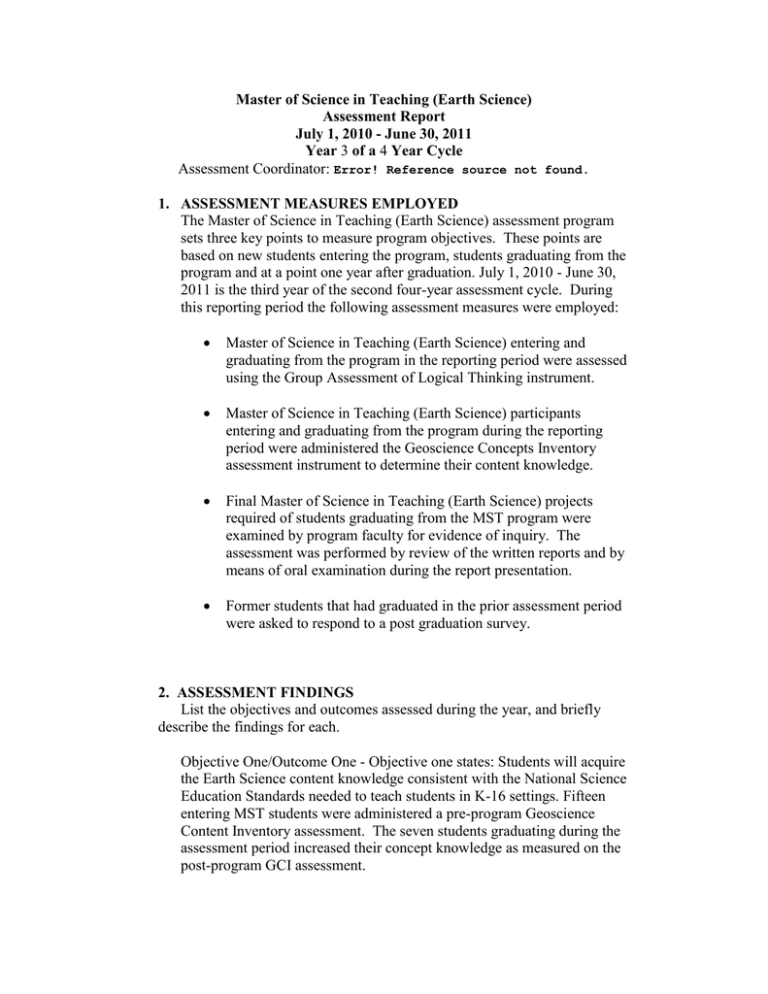
Master of Science in Teaching (Earth Science) Assessment Report July 1, 2010 - June 30, 2011 Year 3 of a 4 Year Cycle Assessment Coordinator: Error! Reference source not found. 1. ASSESSMENT MEASURES EMPLOYED The Master of Science in Teaching (Earth Science) assessment program sets three key points to measure program objectives. These points are based on new students entering the program, students graduating from the program and at a point one year after graduation. July 1, 2010 - June 30, 2011 is the third year of the second four-year assessment cycle. During this reporting period the following assessment measures were employed: Master of Science in Teaching (Earth Science) entering and graduating from the program in the reporting period were assessed using the Group Assessment of Logical Thinking instrument. Master of Science in Teaching (Earth Science) participants entering and graduating from the program during the reporting period were administered the Geoscience Concepts Inventory assessment instrument to determine their content knowledge. Final Master of Science in Teaching (Earth Science) projects required of students graduating from the MST program were examined by program faculty for evidence of inquiry. The assessment was performed by review of the written reports and by means of oral examination during the report presentation. Former students that had graduated in the prior assessment period were asked to respond to a post graduation survey. 2. ASSESSMENT FINDINGS List the objectives and outcomes assessed during the year, and briefly describe the findings for each. Objective One/Outcome One - Objective one states: Students will acquire the Earth Science content knowledge consistent with the National Science Education Standards needed to teach students in K-16 settings. Fifteen entering MST students were administered a pre-program Geoscience Content Inventory assessment. The seven students graduating during the assessment period increased their concept knowledge as measured on the post-program GCI assessment. Objective Two/ Outcomes One and Two – Objective Two states: “graduates will develop and teach inquiry-based integrated science activities in K-16 settings”. Seven MST students graduated during the period from July 1, 2010 - June 30, 2011. The analysis of pre and post assessment of the Group Assessment of Logical Thinking score indicated that the students increased their scores in this measure of logical thinking skills over the period of their participation in the Master of Science in Teaching (Earth Science) program. In addition, the graduating student’s Master of Science in Teaching (Earth Science) projects were examined by program faculty for evidence of knowledge and use of inquiry-based science for their K-12 students in their final projects. Their projects displayed a substantial use and knowledge of inquiry-based science. Objective Three/ Outcome Three- Objective three states, “Graduates will show evidence of continuing to be effective teachers and leaders in their schools”. Four former MST’s responding to the questionnaire indicated that they were continuing to teach and advance in their careers. 3. PROGRAM IMPROVEMENTS Program faculty will meet in November 2011 to consider changes to the Master of Science in Teaching (Earth Science) program assessments, curriculum and services. 4. ASSESSMENT PLAN COMPLIANCE There have been no deviations from the plan during this reporting period. 5. NEW ASSESSMENT DEVELOPMENTS Describe developments (if any) regarding assessment measures, communication, faculty or staff involvement, benchmarking, or other assessment variables. During the prior assessment period Master of Science in Teaching (Earth Science) program faculty met to discuss the results of the direct assessments of objective one and two. As a result of that meeting it was decided to begin to administer a more recently developed version of the Geoscience Concept Inventory.
